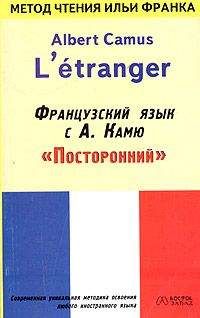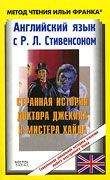Роберт Стивенсон - Английский язык с Р.Л.Стивенсоном. Остров сокровищ
diversity [daɪ`və:sɪtɪ] vary [`veərɪ] coinage [`kɔɪnɪʤ] moindore [`mɔɪdɔ:] sequin [`si:kwɪn] spider [`spaɪdə] autumn [`ɔ:təm] ache [eɪk]
It was a strange collection, like Billy Bones hoard for the diversity of coinage, but so much larger and so much more varied that I think I never had more pleasure than in sorting them. English, French, Spanish, Portugese, Georges, and Louises, doubloons and double guineas and moindores and sequins, the pictures of all the kings of Europe for the last hundred years, strange Oriental pieces stamped with what looked like wisps of string or bits of spider’s web, round pieces and square pieces, and pieces bored through the middle, as if to wear them round your neck — nearly every variety of money in the world must, I think, have found a place in that collection; and for number, I am sure they were like autumn leaves, so that my back ached with stooping and my fingers with sorting them out.
Day after day this work went on (день за днем эта работа продолжалась: «шла вперед, дальше»); by every evening a fortune had been stowed aboard (каждый вечер богатство = куча сокровищ складывалась на борту), but there was another fortune waiting for the morrow (но была другая куча, ожидавшая утра); and all this time we heard nothing of the three surviving mutineers (и все это время мы ничего не слышали о трех выживших бунтовщиках; to survive — выжить, остаться в живых; уцелеть).
At last — I think it was on the third night (наконец — думаю, это было на третий вечер) — the doctor and I were strolling on the shoulder of the hill (мы с доктором бродили по склону холма) where it overlooks the lowlands of the isle (где он возвышается над низиной острова; to overlook — обозревать; смотреть сверху или поверх чего-л. /на что-л./; возвышаться /над городом, местностью и т. п./), when, from out the thick darkness below (когда из непроглядной темноты снизу), the wind brought us a noise between shrieking and singing (ветер принес к нам шум, /что-то среднее/ между криком и песней). It was only a snatch that reached our ears (лишь обрывок достиг наших ушей), followed by the former silence (за которым последовала прежняя тишина).
“Heaven forgive them (прости их, Господи; heaven — Господь, Небеса),” said the doctor (сказал доктор); “’tis the mutineers (это мятежники; ’tis = it is)!”
stowed [stəud] shrieking [`ʃri:kɪŋ] heaven [`hevn]
Day after day this work went on; by every evening a fortune had been stowed aboard, but there was another fortune waiting for the morrow; and all this time we heard nothing of the three surviving mutineers.
At last — I think it was on the third night — the doctor and I were strolling on the shoulder of the hill where it overlooks the lowlands of the isle, when, from out the thick darkness below, the wind brought us a noise between shrieking and singing. It was only a snatch that reached our ears, followed by the former silence.
“Heaven forgive them,” said the doctor; “’tis the mutineers!”
“All drunk, sir (все пьяны, сэр),” struck in the voice of Silver from behind us (вмешался = раздался голос Сильвера позади нас). Silver, I should say, was allowed his entire liberty (Сильверу, следует сказать, предоставлялась полная свобода), and, in spite of daily rebuffs (и, несмотря на ежедневный отпор = нашу холодность), seemed to regard himself once more as quite a privileged and friendly dependant (казалось, он снова считал себя вполне привилегированным и дружелюбным слугой; dependant — вассал, нахлебник; to depend — зависеть от, находиться на иждивении). Indeed, it was remarkable how well he bore these slights (действительно, удивительно, как он переносил = не замечал эти проявления презрения; slight — пренебрежение, проявление пренебрежительного равнодушия), and with what unwearying politeness he kept on trying to ingratiate himself with all (и с какой неутомимой вежливостью он продолжал стараться снискать себе всеобщее расположение). Yet, I think, none treated him better than a dog (тем не менее, думаю, никто не обращался с ним лучше, чем с собакой); unless it was Ben Gunn, who was still terribly afraid of his old quartermaster (за исключением Бена Ганна, который по-прежнему ужасно боялся своего старого квартирмейстера), or myself, who had really something to thank him for (и меня, у которого действительно было за что благодарить его); although for that matter, I suppose (хотя в этом отношении, полагаю), I had reason to think even worse of him than anybody else (у меня была причина думать о нем даже хуже, чем у кого бы то ни было еще), for I had seen him meditating a fresh treachery upon the plateau (потому что я видел, как он замышлял свежее = очередное предательство на плоскогорье; to meditate — обдумывать, взвешивать; размышлять; планировать, затевать; созерцать; медитировать). Accordingly, it was pretty gruffly that the doctor answered him (поэтому доктор ответил ему весьма резко; gruffly — грубо, резко, угрюмо).
“Drunk or raving (пьяны или бредят),” said he.
liberty [`lɪbətɪ] privileged [`prɪvɪlɪʤ] unwearying [ʌn`wɪərɪŋ] politeness [pə`laɪtnɪs] ingratiate [ɪn`greɪʃɪəɪt] treachery [`tretʃərɪ]
“All drunk, sir,” struck in the voice of Silver from behind us. Silver, I should say, was allowed his entire liberty, and, in spite of daily rebuffs, seemed to regard himself once more as quite a privileged and friendly dependant. Indeed, it was remarkable how well he bore these slights, and with what unwearying politeness he kept on trying to ingratiate himself with all. Yet, I think, none treated him better than a dog; unless it was Ben Gunn, who was still terribly afraid of his old quartermaster, or myself, who had really something to thank him for; although for that matter, I suppose, I had reason to think even worse of him than anybody else, for I had seen him meditating a fresh treachery upon the plateau. Accordingly, it was pretty gruffly that the doctor answered him.
“Drunk or raving,” said he.
“Right you were, sir (правильно, сэр),” replied Silver (ответил Сильвер); “and precious little odds which, to you and me (и весьма мало разницы, что с ними, для нас с вами).”
“I suppose you would hardly ask me to call you a humane man (полагаю, вы едва ли попросили бы меня назвать вас гуманным = не претендуете на звание сердечного человека),” returned the doctor, with a sneer (ответил доктор с насмешкой), “and so my feelings may surprise you, Master Silver (так что мои чувства могут удивить вас, капитан Сильвер). But if I were sure they were raving (но если бы я был уверен, что они бредят) — as I am morally certain one, at least, of them is down with fever (а я, в сущности, уверен, что один из них, по крайней мере, лежит в лихорадке) — I should leave this camp, and, at whatever risk to my own carcase (я бы покинул этот лагерь и, каким бы ни был риск моему собственному каркасу /телу/ = даже рискуя жизнью), take them the assistance of my skill (оказал бы им врачебную помощь; skill — искусство, умение, ловкость, навык).”
“Ask your pardon, sir, you would be very wrong (прошу прощения, сэр, вы были бы очень неправы),” quoth Silver (промолвил Сильвер; quoth — сказал, промолвил /уст./). “You would lose your precious life, and you may lay to that (вы бы /только/ потеряли свою драгоценную жизнь, уж это точно). I’m on your side now, hand and glove (я теперь на вашей стороне, всей душой: «рука и перчатка»; hand and glove — очень близко, в тесной связи); and I shouldn’t wish for to see the party weakened, let alone yourself (и я не хотел бы видеть, как отряд ослабеет, не говоря уж о вас = а особенно было бы жалко вас; let alone — не говоря, не считая), seeing as I know what I owes you (особенно же учитывая, чем я обязан вам). But these men down there, they couldn’t keep their word (но эти люди внизу, они не смогли бы сдержать свое слово) — no, not supposing they wished to (нет, даже если предположить, чтобы они хотели этого; to suppose — предполагать, допускать, думать); and what’s more, they couldn’t believe as you could (и, более того, они не смогли бы поверить, что вы смогли бы /держать слово/).”




